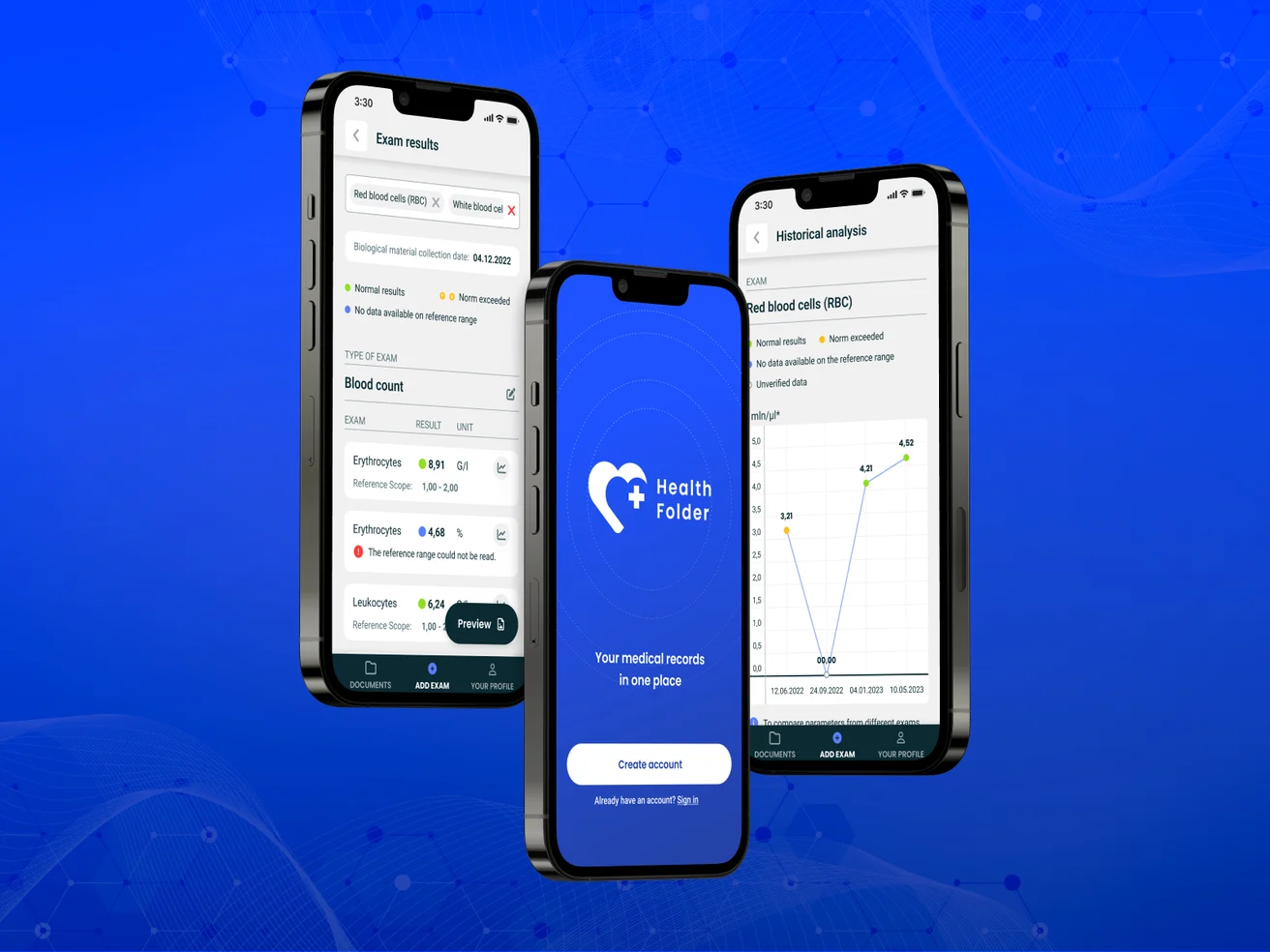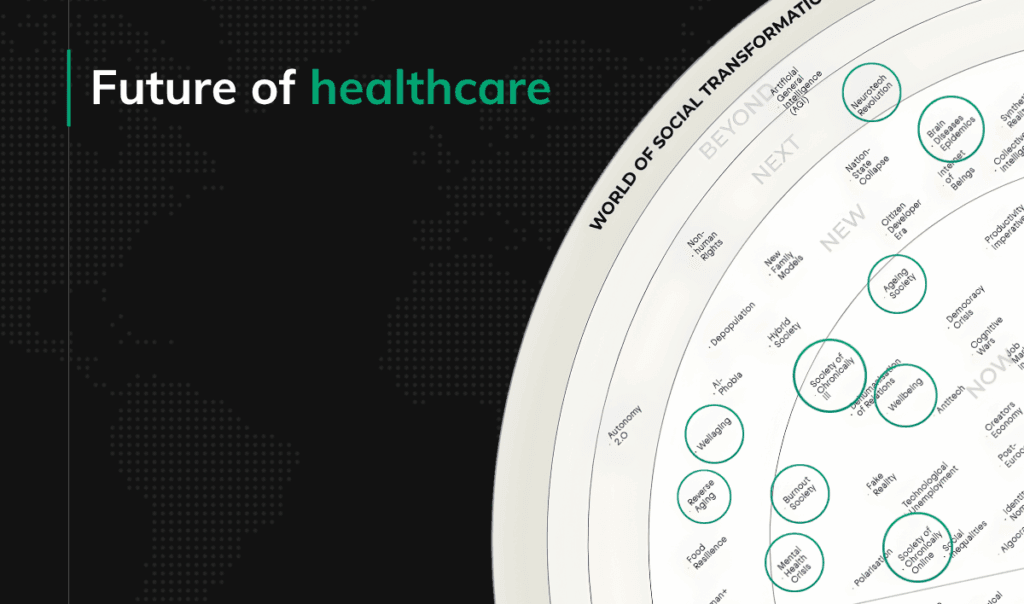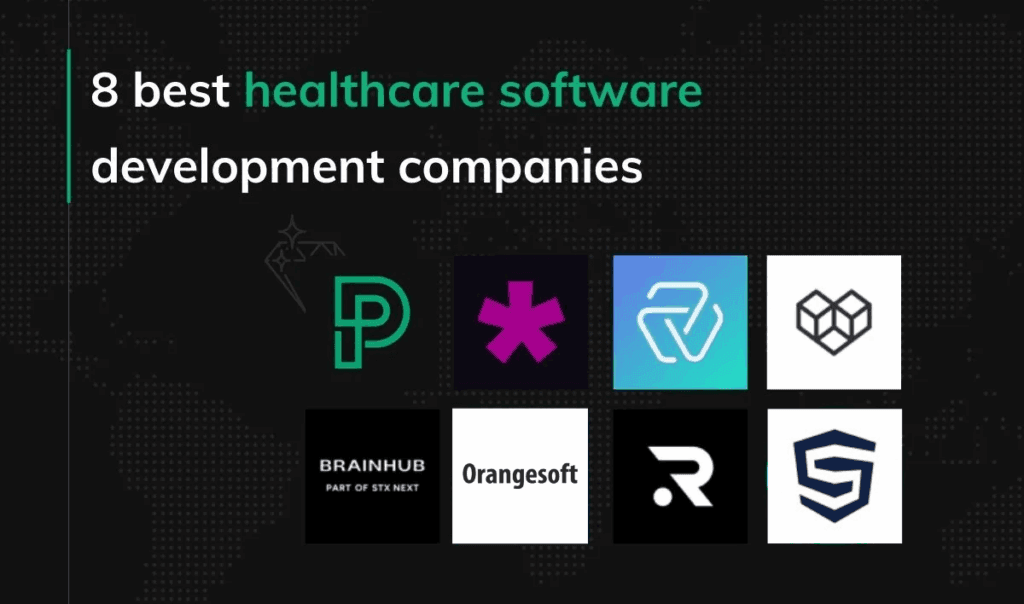Wearable app development company
Your partner in coding next-gen wearable solutions.
Experts in building advanced wearable device applications
High user data security
Wearables collect sensitive user data that must be appropriately handled. Understanding this, we prioritize strong security measures and solutions that protect privacy.
Optimal user experience
Understanding the importance of a great User Experience in mobile applications, we strive to deliver a seamless and engaging UX tailored to the wearable format.
HIPAA compliance
If your custom-built wearable app needs to adhere to HIPAA regulations, you've come to the right place. We have years of experience in developing HIPAA-compliant software solutions.
World-class reliability
Our custom-built wearable apps undergo thorough testing throughout all phases of development to ensure that every feature functions as intended with impeccable reliability.
Health Folder: Your AI-based digital medical documentation folder
Discover how Health Folder revolutionizes medical documentation management with its AI-powered mobile app built using low code.
Read the case study
Our digital health software development process
This is how we work
Deliver & Scale
- Product Development
- DevOps Architecture
- Continuous User Feedback & Delivery
Wearable App Development FAQ
Everything you need to know about wearable apps to choose the right software development partners for your solution.
What are wearable apps?
Wearable apps are software applications designed to run on wearable devices, such as smartwatches, fitness trackers, and smart glasses. These apps provide a variety of features and functionalities, ranging from fitness tracking and health monitoring to productivity tools and entertainment options.
What’s wearable technology?
Wearable technology refers to electronic devices that are worn on the body, such as smartwatches, fitness trackers, and smart glasses. These devices collect data about the user's activity, health, and surroundings, which can be used to provide a variety of services and applications.
Do all wearable device apps have to follow HIPAA?
No, not all wearable device apps have to follow the Health Insurance Portability and Accountability Act (HIPAA). HIPAA applies to "covered entities," which are healthcare providers, health plans, and healthcare clearinghouses. If a wearable device app is used by a covered entity to collect or store protected health information (PHI), then the app must comply with HIPAA regulations.
However, if a wearable device app is used by an individual consumer to track their own health and fitness data, then HIPAA does not apply. For example, if you use a Fitbit to track your steps, heart rate, and sleep, then your data is not protected by HIPAA.
Here are some examples of situations where a wearable device app would need to comply with HIPAA:
- A hospital provides wearable fitness trackers to cardiac rehabilitation patients to monitor their heart rate and physical activity levels during recovery.
- A doctor uses a wearable app to remotely monitor a patient's blood pressure and glucose levels.
- A healthcare app collects data from wearable devices to track patient medication adherence.
If you are developing a wearable device app that will collect or store PHI, it is important to consult with an attorney to ensure that your app is compliant with HIPAA regulations.
How can wearable apps improve healthcare?
Wearable apps can improve healthcare in several ways, including:
- Providing real-time data: Wearable devices can continuously collect data about the user's health, which can be used to identify trends and potential problems early on.
- Improving patient engagement: Wearable apps can make it easier for patients to track their health and stay engaged in their care.
- Reducing costs: Wearable apps can help to prevent costly hospitalizations and other medical interventions.
What are the benefits of using wearable apps?
- Enhanced fitness tracking and motivation: Wearable apps can help you track your steps, calories burned, heart rate, and other health metrics. This data can help you understand your fitness level, set goals, and track your progress. Many wearable apps also provide motivational features, such as badges and challenges, to help you stay on track.
- Improved sleep quality monitoring: They can track your sleep patterns, including duration, sleep stages, and sleep quality. This data can help you identify potential sleep problems and make changes to your sleep habits to improve your sleep quality.
- Continuous health monitoring: Wearable apps can continuously monitor your heart rate, blood pressure, and other vital signs. This data can be used to identify potential health problems early on, when they are most treatable.
- Personalized healthcare: They can be used to provide personalized healthcare recommendations, such as exercise tips, nutrition advice, and medication reminders.
- Convenience and accessibility: Wearable apps are always on, so you can easily access your health and fitness data anytime, anywhere. This makes it easy to track your progress and make changes to your lifestyle as needed.
What distinguishes the best wearable apps?
The best wearable apps are:
- User-friendly: The app should be easy to use and navigate, even for people who are not familiar with technology.
- Reliable: The app should be reliable and accurate, and it should not crash or lose data.
- Secure: The app should protect user data and privacy.
- Engaging: The app should be engaging and motivating to use.
Can you develop wearable apps for iOS?
Yes, we can develop wearable apps for iOS. We have experienced iOS developers on board, and we possess a proven track record in developing digital health solutions.
The highlight of our cooperation was the fast reaction, flexibility, and unique approach of Pragmatic Coders. They created a seamless and collaborative partnership and operated more like internal team members. Their engagement eliminated many miscommunication risks.

Our other healthcare software services
Custom Patient Portal Software Development Services Company
Learn moreMedical Practice Management Software Development
Learn moreLet's talk
We’ve got answers on anything connected with software development.
Message us
Feel free to reach out using the form below, and we’ll get back to you as soon as possible.
Schedule a meeting
You can also schedule an online meeting with Wojciech, our Senior Business Consultant.


founders who contacted us wanted
to work with our team.
Check our digital health-related articles
Newsletter
You are just one click away from receiving our 1-min business newsletter. Get insights on product management, product design, Agile, fintech, digital health, and AI.






